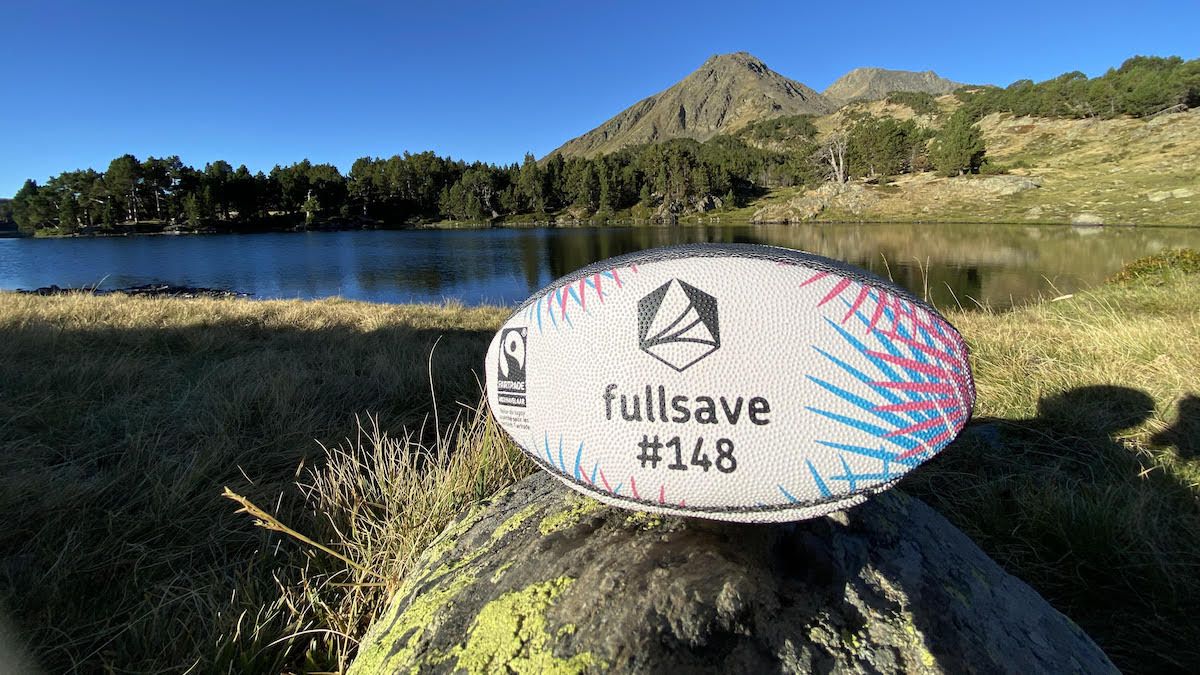 +
+
From months to days: MIS accelerates support for disaster victims with GitLab
- Faster releases
- No tool integration time
- Improved productivity

Want to see what GitLab Ultimate can do for your team?
McKenzie Intelligence Services (MIS) collects and analyzes critical data to help global insurance companies accelerate economic recovery after both natural and man-made disasters.
Focused on providing post-event intelligence, the company helps get aid to people and businesses when they need it most. By adopting GitLab’s end-to-end DevSecOps platform in 2018, MIS has dramatically cut the time it takes to get critical information to insurers — enabling them to accelerate payouts to people in crisis, while protecting sensitive data.
Our insurance company customers need to respond to disaster victims as fast as possible. With our GEO platform, which we built with GitLab, they have the data they need to help people in days, instead of months or even years.
Founded in London in 2011, McKenzie Intelligence Services has 27 employees. The company’s NATO- and military-trained analysts provide detailed evaluations of hurricanes, wildfires, tornadoes, earthquakes and other catastrophic events, monitoring situations from as far afield as Ukraine to Yemen.
Using its Global Events Observer (GEO) platform, built with GitLab’s DevSecOps platform, the company conducts risk and damage assessments worldwide. With GEO, MIS formulates insights into potential risks and offers data-driven recommendations that help insurers expedite claims processing and disaster response efforts. GEO’s capabilities extend beyond natural disasters — government agencies and multi-national corporations also rely on GEO to assess evolving geopolitical situations.
GEO is the heart of MIS. Covering the globe, it maps all natural and man-made catastrophes. The platform can obtain, and study, images from the entire path of a hurricane, for instance, down to the damage done to an individual house. The organization’s intelligence analysts use GEO, and the data — such as aerial and satellite imagery — it brings in and stores, to plot risk before a storm rolls through, study wind speeds, fire damage and storm surges during the storm, and then assess the damage after.
The system handles between 100 gigabytes and one terabyte of data per catastrophe, while holding tens of hundreds of terabytes of data total. Given the sensitive nature of this information and its global reach, their system must meet rigorous security standards and comply with various regulations across multiple countries. MIS can meet both of those critical needs because GEO was built, and is continually updated, with GitLab.
“It’s our only product, so it is definitely critical to the company,” says Andrei Nita, chief technology officer of McKenzie Intelligence Services. “The majority of our revenue comes from GEO so it has to be a really well-run, efficient, and secure product. That’s why we use GitLab.”
The system was built top to bottom with the DevSecOps platform, using GitLab’s CI/CD pipelines, automated security features, and the GitLab Docker registry and containers. They also store their entire code base in GitLab.
With the strength of GEO, the organization is able to gather, analyze, and then feed that information to major insurance companies around the world at top speed. That means those insurers can then take care of their customers faster, easing disaster victims’ suffering.
For example, MIS used GitLab to create scripts that automate collecting disaster data to populate their GEO ecosystem. Instead of manually searching for data about the exact path of a tornado, GEO can automatically grab and organize that data, saving analysts a significant amount of time and effort. The scripts also enable them to pinpoint data collection geographically, giving specific customers exacting information and filtering out anything they don’t need.
Nita notes that previously it took months, sometimes even years, for an insurance company to get the information it needed to make individual claim payouts, which enable people to rebuild their homes, and rebuild their lives.
“But with observed data from GEO, we can get the insurers the information — actionable and trusted information — they need in 24 to 72 hours after the event,” he says. “Our insurance clients need to respond to disaster victims as fast as possible. With GEO, they have the data they need to help people in days, instead of months or even years. That makes a difference in people’s lives. They need help right away. Say there’s a flood, they might no longer have a home to go back to. They need their insurance company to be able to help them.”
Nita adds that delivering needed data and insights within three days is a major selling point for MIS’s service. The ability to provide imagery and one-by-one kilometer grids with detailed assessments and damage ratings is critical to their overall business success.
This dramatic acceleration in disaster response didn't just benefit MIS clients — it also transformed how their own teams work. Before adopting GitLab, MIS had used an inefficient mix of five different DevOps tools that caused difficult onboarding, fragmented workflows, the need for a variety of support teams, slow deployment processes, and problems maintaining collaboration across distributed teams. By eliminating that toolchain with a single, end-to-end platform, the organization has not only made their team’s jobs easier, they’ve also been able to launch releases every two weeks, instead of quarterly or even less frequently. And it enables them to more easily meet client requests, particularly those that are stipulated as part of their contracts.
“With the toolchain we had before, I think a lot of people were kind of confused about where things were being done and if projects were ready. It affected our delivery schedule,” says Nita. “It resulted in very little value being created with the technology. That meant we were slow to respond to customer requests. It was a drag on the company. That’s no longer a problem.”
Cutting that toolchain and working on a single platform is even more important for a small business trying to get a lot of work done with fewer hands. “That’s 100% true,” adds Nita. “The problem was that a majority of a developer’s time had been spent on integrating and connecting one disparate tool to the other. And if there was a problem, finding out which tool was causing it. With a single platform, though, everything is already connected and integrated by design. Our development team is only seven people — that’s 20% of our company. We’re a small team with a small budget. We need an advantage that enables us to function as a much bigger team.”
To speed and ease those deployments even more, Nita says they will consider adopting GitLab Duo, a suite of AI-powered features that assist across the entire software development lifecycle.
For MIS, the ability to collaborate quickly and effectively is crucial when monitoring disasters and delivering critical data to insurers. Before adopting a single application, even their small team struggled to work cohesively — the mix of tools created barriers between analysts tracking storm damage, developers building data collection tools, and teams working directly with insurance companies.
Now using a unified platform, the organization has seen a dramatic increase in collaboration that directly impacts their disaster response capabilities. This includes not only work between DevSecOps team members, but also between developers and other teams, like those in product, customer support, and client solutions, who sometimes write their own simple scripts or SQL queries in GitLab. Together, they now can all rapidly implement changes that help get aid to people faster.
“Sometimes they start writing some scripts, but then they get stuck. Because they’re all on the same platform, they can easily tag someone to help them,” says Nita. “The engineers can just jump in, see the latest commit or merge request, and get them squared away. That kind of cross collaboration saves everyone so much time and, ultimately, makes everything seamless.”
Using a unified platform also makes it easier and faster to make their software secure, according to Nita. Being able to take advantage of automated security features, like static application security testing (SAST), dependency scanning, secret detection, and vulnerability reporting within merge requests, was one of the reasons he has been so happy using GitLab. “Having those automated tools built in has so much value for us,” he adds.
And that value extends into their regulatory needs.
Because of GitLab’s automated security features, along with standardization and documentation tools, MIS is more easily able to remain compliant, while working with major insurance companies based around the world — with many requiring different standards specific to individual countries. The company has to manage potentially hundreds of different laws and regulations.
“We have very strict regulations to meet,” says Nita. “The ecosystem that we need to operate in must be very secure. But when we tell companies that we use GitLab — with its CI/CD, its registry, its security and documentation tools — we don’t get any follow-up questions about our compliance abilities, which is helpful because generally it takes ages to get signoff from major enterprises.
“We had a client recently who said it generally takes them several months to close the regulatory process, but we managed to close it within a few weeks,” he adds. “That’s key. That affects our business.”
GitLab's single DevSecOps platform has revolutionized McKenzie Intelligence Services' operations by delivering the critical trifecta of speed, security, and compliance. The platform's automated security features, standardization tools, and streamlined workflows not only enable the company’s small development team to transform three-month release cycles into rapid two-week deployments, but to also ensure software security, and seamless compliance with global regulations. This technological foundation allows MIS to focus on their expertise — helping insurance companies worldwide accelerate disaster recovery efforts.
All information and persons involved in case study are accurate at the time of publication.


